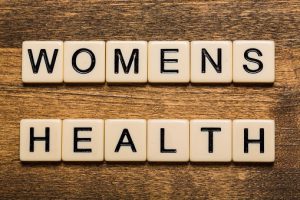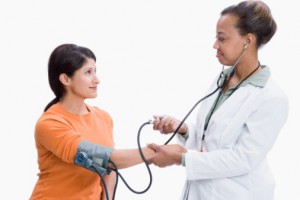 The life stages of women’s reproductive health begin with puberty (menstruation) and end with menopause. Menopause marks the time when a woman stops having her period and is no longer able to reproduce. While this stage is a normal part of life it has its challenges as women may experience several, physical and emotional changes. Here are six simple facts to educate and help prepare you for potential changes ahead.
The life stages of women’s reproductive health begin with puberty (menstruation) and end with menopause. Menopause marks the time when a woman stops having her period and is no longer able to reproduce. While this stage is a normal part of life it has its challenges as women may experience several, physical and emotional changes. Here are six simple facts to educate and help prepare you for potential changes ahead.
- What is menopause?
Menopause is medically defined as the time in a woman’s life when she has not had her period for 12 months after her last menstrual cycle. Her ovaries will cease to further produce eggs.
- When does it happen?
The average age for women living in the United States to experience menopause is 51 years old. However, in some cases, it can occur as early as a woman’s 30’s or as late has her 60’s. Symptoms can begin to present a few years earlier before the actual onset of menopause. This stage of your reproductive health is referred to as perimenopause.
- What are the symptoms?
The symptoms of menopause may vary from person to person; they may include:
- Hot flashes
- Night sweats
- A slowed metabolism and weight gain
- Vaginal dryness
- Mood swings
- Trouble sleeping
- Thinning hair
- Incontinence
- How to treat or cope with symptoms?
There are several treatments and lifestyle changes you can apply to help relieve symptoms, some of which are:
- Hormone replacement therapy
- Getting enough sleep
- Strengthening pelvic floor muscles by doing Kegel exercises
- Eating a balanced diet
- Taking calcium and Vitamin D supplements, as recommended
- Exercising regularly
- Taking low-dose anti-depressants as prescribed
- Can menopause lead to further complications?
Your risk for developing certain health conditions may increase after menopause. Examples of these include osteoporosis and cardiovascular disease
- When should I speak to my doctor about menopause?
If you are experiencing unusual pain, other extreme physical or emotional symptoms which affect your quality of life, it is advised that you speak with your doctor as soon as possible. Your doctor may explore treatment options or suggest lifestyle changes. It is also recommended that you begin the conversation about menopause during perimenopause (early menopause symptoms). Your doctor can offer guidance on what to expect.
Flushing Hospital also offers a full range of OB/GYN ambulatory care services in its Women’s Health Center. To make an appointment, please call 718 670-8994.
All content of this newsletter is intended for general information purposes only and is not intended or implied to be a substitute for professional medical advice, diagnosis or treatment. Please consult a medical professional before adopting any of the suggestions on this page. You must never disregard professional medical advice or delay seeking medical treatment based upon any content of this newsletter. PROMPTLY CONSULT YOUR PHYSICIAN OR CALL 911 IF YOU BELIEVE YOU HAVE A MEDICAL EMERGENCY.

